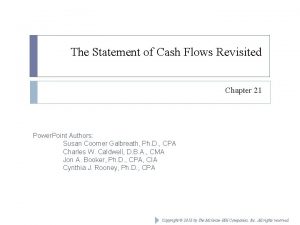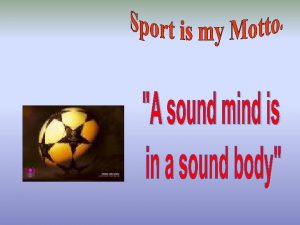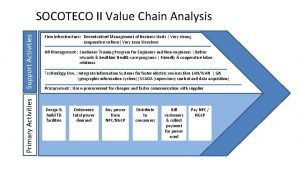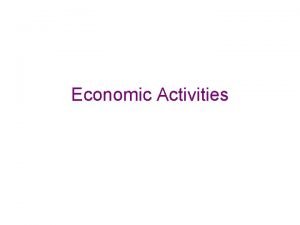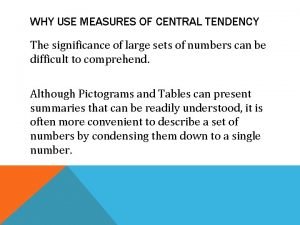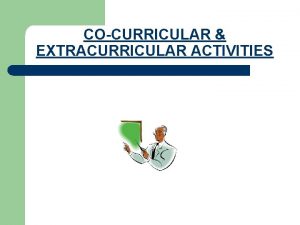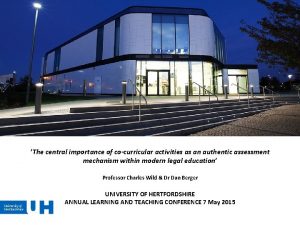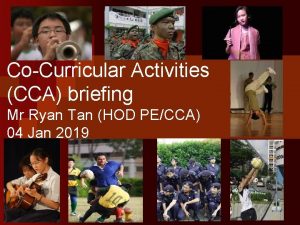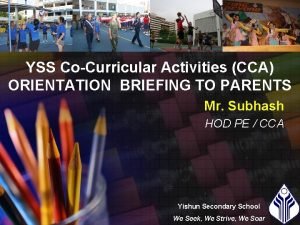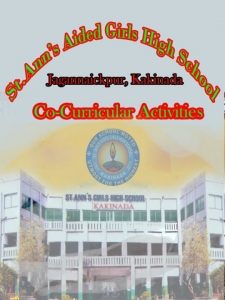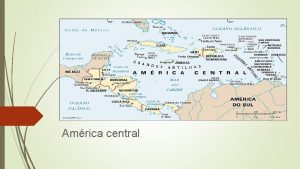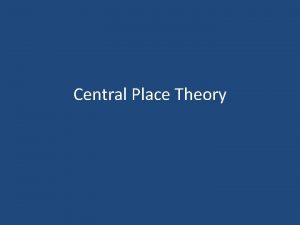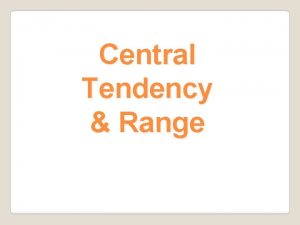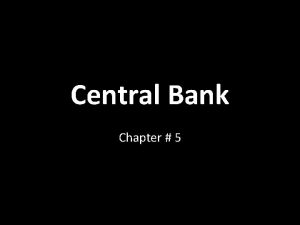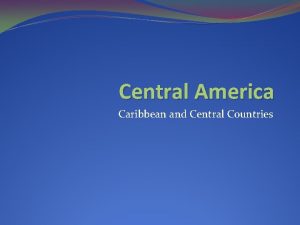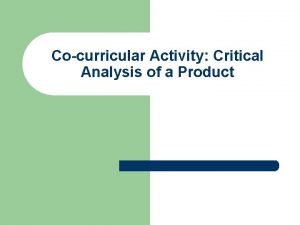The central importance of cocurricular activities as an










![Mooting ‘I want to thank you, both for Matt [Jason’s mooting partner] and myself, Mooting ‘I want to thank you, both for Matt [Jason’s mooting partner] and myself,](https://slidetodoc.com/presentation_image_h/05f29de48f37d6727746114e21e61e3f/image-11.jpg)












- Slides: 23

‘The central importance of co-curricular activities as an authentic assessment mechanism within modern legal education’ Professor Charles Wild & Dr Dan Berger UNIVERSITY OF HERTFORDSHIRE ANNUAL LEARNING AND TEACHING CONFERENCE 7 May 2015

Authentic assessment – Subject Benchmark Statement Draft QAA Subject Benchmark Statement for Law (March 2015): “…a law graduate is far more than a sum of their knowledge and understanding, and is a well skilled graduate with considerable transferable generic and subject-knowledge, skills and attributes. ” “We encourage Law Schools to help students to articulate to employers what they can do and what their qualities of mind are by using this statement: § Ability to produce a synthesis of relevant doctrinal and policy issues, presentations of a reasoned choice between alternative solutions and critical judgment of the merits of particular arguments § Ability to apply knowledge and understanding to offer evidenced conclusions, addressing complex actual or hypothetical problems § Ability to communicate both orally and in writing, in relation to legal matters, including an ability to listen and respond to oral stimuli including questions and instructions. ”

Authentic assessment: ‘…can raise aspirations and increase intrinsic student motivation through explicit demonstration of career alignment and relevance of curriculum activities’ - QUT Office of Teaching Quality, 2009 They are: ‘…closely aligned with activities that take place in real work settings, as distinct from the often artificial constructs of university courses’ - Boud & Falchikov, 2007 § It is an assessment method that presents a task for students to perform and a way to measure their performance on the task. § The authentic assessment of a student's ability to solve problems would assess how effectively a student solves a real problem. § Authentic assessment require students to apply a broad range of knowledge and skills.

Why is authentic assessment important? ‘…student engagement with on-campus life is decreasing…’ ‘…Through the process of engagement, students are more likely to experience a positive and fulfilling approach to the accumulation of the ‘legal content’ in their law degree. ’ Hart et al, 2010 § Creation of on-campus communities § Increase in social skills and self-confidence § Improvement in practical skills § Enhanced employability prospects

Formative v Summative assessment methods ‘Assessment is formative where it occurs as part of a progressive learning exercise, and where the main purpose is to facilitate student learning…Summative assessment reports on and certifies the “achievement status of a student”’ - Sadler, 1989 § Authentic assessment naturally incorporates both methods, as two-way interaction between participants/assessor is encouraged and inevitable - formative and summative assessment methods are not mutually exclusive § Formative assessment is vital where there is an ongoing assessment, such as in advocacy competition formats – this can be: (i) peer-led and/or tutor-led (there advantages and disadvantages to either type); and (ii) active and/or passive (receiving feedback yourself or observing others receiving feedback) § Summative assessment is vital to determine the winner of a stage of the competition

Why are both formative and summative methods important? § Legal practice incorporates both methods, so it is natural that authentic assessment should too: § Formative: The legal community relies largely upon self regulation, education and improvement, to ensure that practitioners provide clients with exemplary service – without which it cannot be said that the system upholds the Rule of Law Inns of Court, the Bar Society, the Solicitors' Regulation Authority et al, require practitioners to develop themselves and others throughout their professional careers The nature of the hierarchical court system and authorship of legal journal articles are a form of peer-led formative assessment of court judgments § Summative: The UK legal system is adversarial in nature and demands a ‘winner’ and a ‘loser’ in each case

Authentic assessment at the School of Law § The School of Law delivers various co-curricular courses, each designed to echo a different area of legal practice, including among others: (i) Mooting – legal research on technical points of law (ii) War of Words (Wo. W) – high pressure emergency applications (iii) Mock trials – testing of evidence (iv) Debating – logical reasoning (v) Mediation – alternative dispute resolution § Each course incorporates formative and summative assessment methods and is delivered in at least three separate assessment stages § Each course involves an element of public speaking § Each course (apart from mediation) incorporates an element of competition, to align with the adversarial nature of the UK legal system.

The importance of an authentic setting § There are two settings for the co-curricular course: The authentic Crown courtroom; and the bespoke mediation centre § Most law schools deliver practical courses in featureless classrooms, inauthentic to the environments encountered in practice § At The School of Law: § The Courtroom: An open forum with spectator areas, an authentic distance between Bar and raised bench, authentic and imposing décor § The Mediation Centre: Glass-fronted central meeting room with separate caucus meeting rooms for client instructions/negotiations in private § Students become comfortable with challenging environments and quickly become accustomed to the formality of the settings

The importance of an authentic setting

A Tale of Two Jasons § Jason Andriychuk – a 1 st year LLB student from Ukraine. English as a second language. 2014 -15 UH Mooting Cup winner § Jason Tang – a final (3 rd) year LLB direct entrant (first year in the UK) student from Malaysia. English as a second language. 2014 -15 War of Words (Wo. W) winner § Neither student had any advocacy experience before arriving at the School of Law, and before participating, both professed to being nervous about public speaking in a new environment, in an unfamiliar legal system, and in a second language. § Both students finished top of their co-curricular courses this year, among a cohort of hundreds of participating students (Mooting: 127, Wo. W: 500+) § How is this achieved?
![Mooting I want to thank you both for Matt Jasons mooting partner and myself Mooting ‘I want to thank you, both for Matt [Jason’s mooting partner] and myself,](https://slidetodoc.com/presentation_image_h/05f29de48f37d6727746114e21e61e3f/image-11.jpg)
Mooting ‘I want to thank you, both for Matt [Jason’s mooting partner] and myself, for your invaluable input that has enabled us to win the competition (in my case from barely being able to open my mouth)’ – Jason Andriychuk, 1 st year LLB student, and winner of the 2014 -15 UH Mooting Cup § Mooting (a mock appeal on complex points of law) is a two-person team activity, renowned by employers as the ‘gold standard’ of practical legal assessment § It is valued by the legal practice community as evidence of legal reasoning, collaboration and public speaking § It is usually capped in numbers due to it being generally provided on an extracurricular basis by a student society, and delivered by students § We deliver our mooting course by experienced staff to an uncapped number of students, and accredit it

Mooting – format of the course § A 3 week x 2 hours combined lecture/workshop delivery at the start of the year § Students pair-off - recommended outside of their own year group to encourage peer tuition and support § Written presentations to prepare first, with intensive legal research, as in practice § Oral submissions in courtroom with a tutor judging, again as in practice § Formative feedback from the tutor provided on: (i) Content; (ii) Presentation § Summative appraisal provided for written and oral elements (not win-loss on the day, to provide consistency across cohort) Stage 1: Oral, Stage 2: written, Stage 3: Q-Fs of competition § Students are encouraged to watch other students mooting/receiving tutor feedback

Mooting

War of Words (Wo. W) ‘Participating in Wo. W wasn’t easy, but the experience was extremely worthwhile. . . It encourages one to think critically, to lure the audience into a pre-planned train of thought and provide extraordinary responses to blow their minds’ – Jason Tang, 3 rd year LLB student, and winner of the 2014 -15 UH Wo. W annual competition § Wo. W (a single student making a one minute argument on a controversial topic, then facing high pressure rebuttals from the audience) tests research skills, critical analysis, resolve under pressure, and public speaking skills § The format is a ‘flipped’ version of a traditional short notice legal application. § It is confrontational, and places the student under immense pressure to react to questions from multiple directions § It is unique to the School of Law and has, so far, been used effectively in local schools, in UH marketing events, staff events, and with international partners in Malaysia

War of Words (Wo. W) – format of the course § Week 1 – a practice, non-accredited, session with Candidates volunteering to defend positions, such as ‘That the UK should abolish its monarchy’ placed onto a designated blogsite. Six positions available per week § Audience judges, which naturally change on a week-by-week basis and from many schools in UH, do not volunteer, but participate on a non-accredited basis § Weeks 2 -19 – Students accrue credits through successful defences § Week 20 – Grand Final with top scoring candidates competing to become winner § Formative feedback from the audience to the Candidates on: (i) Content; (ii) Presentation; Formative feedback from the tutor to the audience on quality of questioning § Summative appraisal from the tutor to the Candidates

War of Words (Wo. W) – 2014/15 Final

War of Words (Wo. W) – 2014/15 Final

Authentic assessment: enhanced practical skills § According to Burton, 2011 there are various benefits to authentic assessment, not found in alternative (‘standard’) teaching practice, the most prominent being: (i) Fidelity to the ‘real world’ – by teaching the context of the task, the student becomes more aware of the consequences of their actions (ii) The assessment becomes a product in its own right – the outcomes/skills achieved are transferable across other subjects and tasks (iii) Promotion of high order thinking, reflection and self-assessment – the development of emotional intelligence necessary to survive (iv) Encouraging collaboration – embedding teamwork to identify the social context of the assessment/real world skills/values (v) Integration of assessment with task – the awareness that assessment is an ongoing process, not just after the task has been performed – merely requiring the student to submit a self-reflective log will not do (vi) The requirement of students to make choices, judgements and set tasks themselves – thereby valuing student autonomy and initiative

Authentic assessment: enhanced LLB performance § There is a direct correlation between students who excel on the LLB undergraduate course and those who engage with co-curricular courses § Although co-curricular courses are time consuming, there is no evidence to suggest that they are detrimental to student performance on the undergraduate degree. In fact, the opposite seems to be true: § Case example: student ‘KE’: § No attendance on co-curricular courses during 1 st year LLB 2012 -13. Grade average: 61% § Attendance on mooting course during 2 nd year LLB (winner of UH Mooting cup, with 6 mooting wins in academic year and approx. 300 hours of engagement) 2013 -14. Grade average: 69. 75%

Employability: Self-confidence § Court proceedings are open to the public and courts, although voluminous, do not usually provide voice amplification equipment to practitioners § Court hearings are adversarial in nature, and require degrees of confrontation between practitioner and witness(es); practitioner and judge; and presentation of case to juries. § Mediations are more intimate and require less confrontation. However, in both Court and mediation disciplines students are subjected to exposure and scrutiny § Self-confidence is an acquired skill in most students, with novice public speakers reluctant to be subjected to scrutiny by tutor or audience § The open forum and formative assessment method allows more reluctant students to be involved initially in a non-confrontational way, and then become more involved later

Employability: Accreditation § At the School of Law, our courses are delivered by trained specialist advocates - not students § At the end of the student’s undergraduate degree, they will receive their degree certificate, PLUS a diploma or certificate in professional development with their accrued co-curricular credits: 5/10/15 in each course to a maximum of 30 (certificate) or 60 (diploma) § This achievement provides evidence to prospective employers of: (i) (iii) (iv) Participation Competency A transcript of the different disciplines undertaken The University’s endorsement and delivery of the courses § This type of accreditation is unique in the sector

Employability: A sense of community § Although there is no accreditation available for audience judges, the number of participants this year has been 500+ § Wo. W and mooting sessions are not capped in numbers and are available to spectators. Sessions are invariably attended to room capacity § There is a weekly law social in the SU available to all students. The number of participants in the academic years 2012 -13/2013 -14 (pre-Wo. W) was 6 -10 § Since Wo. W, there has been a minimum of 40 students at each weekly law social, and as high as 100 § The legal community is just that: A community. Employers value social skills as highly as professional skills. Pupil barristers are required to dine at their Inn of Court, Chambers are operated fraternally, Solicitors firms are mainly partnerships, and the Law Society runs educational and social events

Bibliography and further reading § ‘A framework for determining the authenticity of assessment tasks: applied to an example in law’ Burton, K. , [2011] Journal of Learning Design, Vol. 4 No. 2 § ‘Rethinking assessment in higher education: Learning for the longer term’ - Boud, D. , & Falchikov, N New York: Routledge § ‘The real deal: using authentic assessment to promote student engagement in the first and second years of a regional law program’ – Hart, C. , et al [2011] Legal Education Review, 21 (1) § ‘Get Real! A Case Study of Authentic Learning Activities in Legal Education’ – Kam, L. , et al [2012] Murdoch University Law Review 19(2) § ‘The moot reconceived: some theory and evidence on legal skills’ – Keys, M. & Whincop, M. [1997] 8 Legal Educ Rev 1 § ‘Formative Assessment and the Design of Educational Systems’ - Sadler, R. , [1989] 18 Instructional Sci 119 § ‘Protocols: First year experience’ - QUT Office of Teaching Quality [2009]
 Operating activities vs investing activities
Operating activities vs investing activities Outdoor sports chart
Outdoor sports chart Primary and support activities
Primary and support activities Tertiary activities definition
Tertiary activities definition Why is the median useful
Why is the median useful Hình ảnh bộ gõ cơ thể búng tay
Hình ảnh bộ gõ cơ thể búng tay Bổ thể
Bổ thể Tỉ lệ cơ thể trẻ em
Tỉ lệ cơ thể trẻ em Gấu đi như thế nào
Gấu đi như thế nào Glasgow thang điểm
Glasgow thang điểm Bài hát chúa yêu trần thế alleluia
Bài hát chúa yêu trần thế alleluia Môn thể thao bắt đầu bằng từ đua
Môn thể thao bắt đầu bằng từ đua Thế nào là hệ số cao nhất
Thế nào là hệ số cao nhất Các châu lục và đại dương trên thế giới
Các châu lục và đại dương trên thế giới Công của trọng lực
Công của trọng lực Trời xanh đây là của chúng ta thể thơ
Trời xanh đây là của chúng ta thể thơ Mật thư anh em như thể tay chân
Mật thư anh em như thể tay chân 101012 bằng
101012 bằng Phản ứng thế ankan
Phản ứng thế ankan Các châu lục và đại dương trên thế giới
Các châu lục và đại dương trên thế giới Thơ thất ngôn tứ tuyệt đường luật
Thơ thất ngôn tứ tuyệt đường luật Quá trình desamine hóa có thể tạo ra
Quá trình desamine hóa có thể tạo ra Một số thể thơ truyền thống
Một số thể thơ truyền thống
